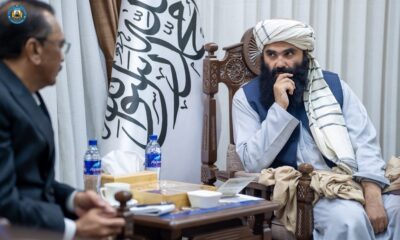Latest News
Targeted killings taking serious toll on civil society and media: UN report
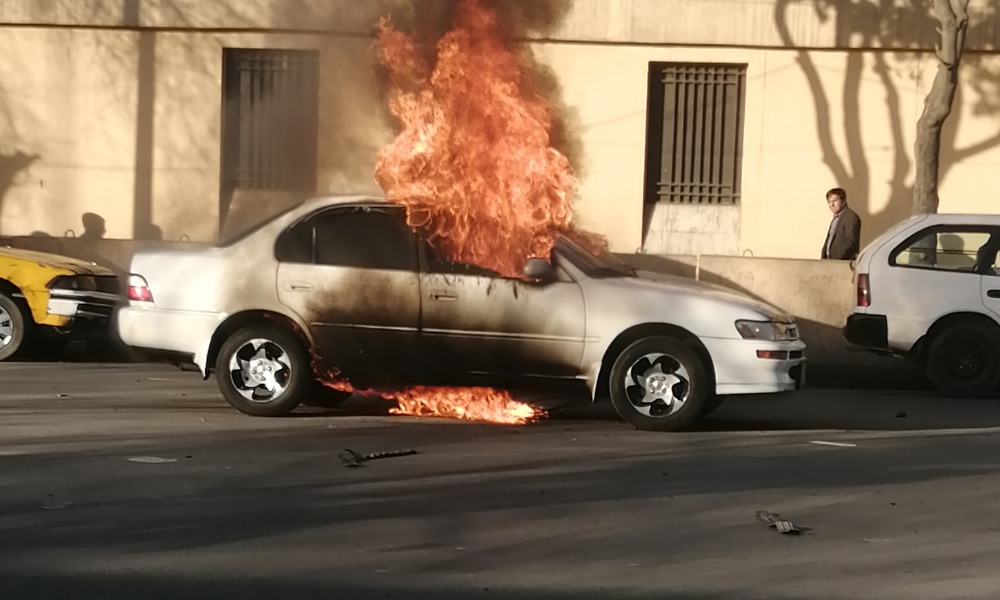
The UN Assistance Mission in Afghanistan said Monday that human rights and media space in Afghanistan has contracted in the past few months as a result of the sharp increase in targeted attacks against professionals in these two sectors.
In a report issued Monday by UNAMA, analysis shows that since the start of peace talks in Doha, on September 12 last year, until January 31, 11 human rights defenders and media workers have been killed in targeted attacks.
The new report analyses data and trends connected to the killings and traces the changing patterns of attacks on these key sectors and provides recommendations.
UNAMA stated in the report that “this trend, combined with the absence of claims of responsibility, has generated a climate of fear among the population.”
In addition, research found that human rights and media space has contracted as a result, with many professionals exercising self-censorship in their work, quitting their jobs, and leaving their homes and communities with hopes it will improve their safety. Many, including high profile personalities, have fled the country.
“The killings have had the broader impact across society of also diminishing expectations around efforts towards peace,” a UNAMA statement read.
“The Afghan people need and deserve a flourishing civic space – a society where people can think, write and voice their views openly, without fear,” said Deborah Lyons, the Secretary-General’s Special Representative for Afghanistan.
“The voices of human rights defenders and the media are critical for any open and decent society. At a time when dialogue and an end to the conflict through talks and political settlement should be the focus, the voices from human rights and the media need to be heard more than ever before, instead, they are being silenced,” said the envoy, who is also head of UNAMA.
UNAMA stated that one of the key trends to emerge in the past few months is that attacks against representatives of the human rights and media sectors in Afghanistan are clearly “intentional, premeditated and deliberate targeting of individuals with perpetrators remaining anonymous.” This contrasts to previous years.
The report also records a total of 65 human rights defenders and media professionals killed in the period from 1 January 2018 to 31 January 2021; 32 from the human rights sector and 33 from the media.
Of these, 11 (five human rights defenders and six media) were killed in the four-month period from 1 October 2020 – 31 January 2021 alone, the statement read.
The report notes that as they work to provide timely information to the population of Afghanistan on a range of issues (including violations of international humanitarian law and human rights law), human rights defenders, journalists and media workers are far too often exposed to threats, intimidation, harassment, surveillance or arbitrary detention.
A series of recommendations to both state and non-state actors are contained in the report.
Recommendations made to the Afghan government include the establishment of an effective and cooperative national protection mechanism under the leadership of the Second Vice President Sarwar Danish.
Also for an adequate preventive framework, including special protective and proactive security measures for human rights defenders, journalists and media workers, to be put into place.
UNAMA also called for assurances that human rights defenders, journalists, and media workers can continue their legitimate rights to life, freedom of association, freedom of expression and access to information, as well as other fundamental freedoms, without fear of reprisal or attack.
Key among the recommendations was counter impunity, including by conducting independent, impartial, prompt, thorough, effective, credible and transparent investigations into killings and that genuine accountability, and prosecuting of suspects follow due legal process.
Recommendations to insurgent groups included the call for them to cease all killings of human rights defenders, journalists and media workers, in accordance with international human rights and humanitarian law.
For the Taliban in particular, UNAMA called on them to condemn, at the leadership level, the killings of human rights defenders, journalists and media workers.
UNAMA also called on the group to investigate cases where Taliban members are alleged to have been involved and hold to account Taliban members that order or implement the killings of human rights defenders, journalists and media workers.
The group was also encouraged to adopt, publicize and enforce policies that prohibit the killings of human rights defenders, journalists and media workers and to repeal existing policies (and refrain from adopting new ones) limiting civic space, including restrictions to freedom of association, the work of civil society and humanitarian actors, and freedom of expression.
The international community was also called on to assist with the problem.
UNAMA urged them to continue condemning the killing of human rights defenders and media professionals, and to underscore the importance of the role of human rights defenders and independent media for a unified, sovereign, peaceful and democratic Afghanistan.
UNAMA also encouraged the international community to increase support to programs that provide security, travel, financial, capacity building and other assistance to them.
Latest News
No destructive groups including Daesh present in Afghanistan: Yaqub Mujahid
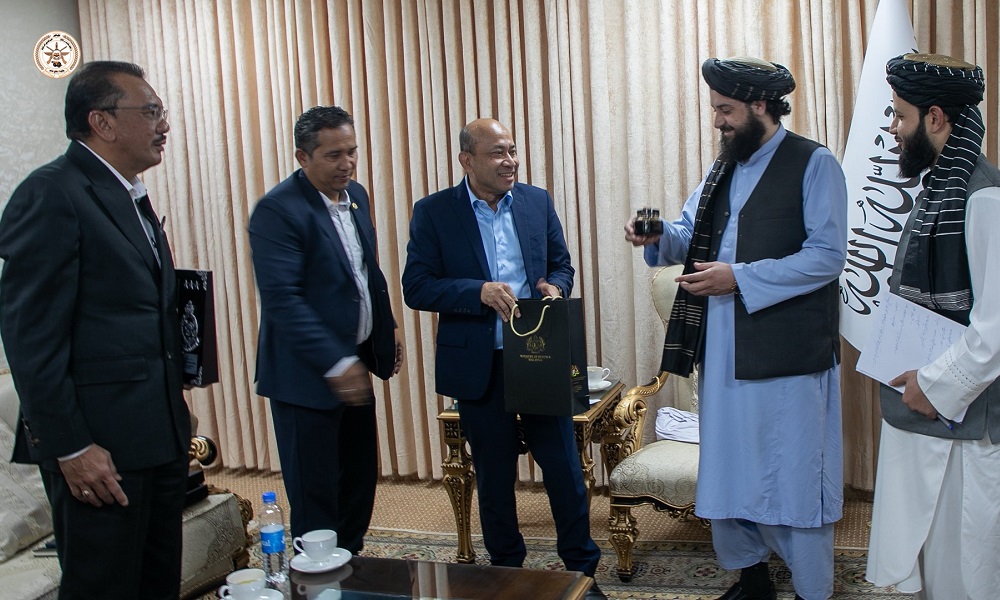
Acting Minister of National Defense Mohammad Yaqub Mujahid has said that no destructive groups including Daesh have physical presence in Afghanistan, adding the Islamic Emirate of Afghanistan (IEA) will not allow anyone to pose threat to any country in the region from the Afghan soil.
Mujahid made the remarks in a meeting with a delegation from Malaysia in Kabul on Thursday.
According to a statement released by the Ministry of Defense, Mujahid highlighted Malaysia’s “good treatment” of Afghan refugees and its long-standing relations with Afghanistan, and said that Malaysia is a powerful Islamic country and visits should increase.
He added that with the establishment of the Islamic Emirate, occupation and war ended in Afghanistan, and the country is fully secure.
Based on the statement, the Malaysian delegation called Afghanistan a friendly country and while emphasizing on comprehensive cooperation, it assured that what they have seen in Afghanistan will be shared with the authorities of their country.
Latest News
EU allocates 17 million euros to support Afghans on the move
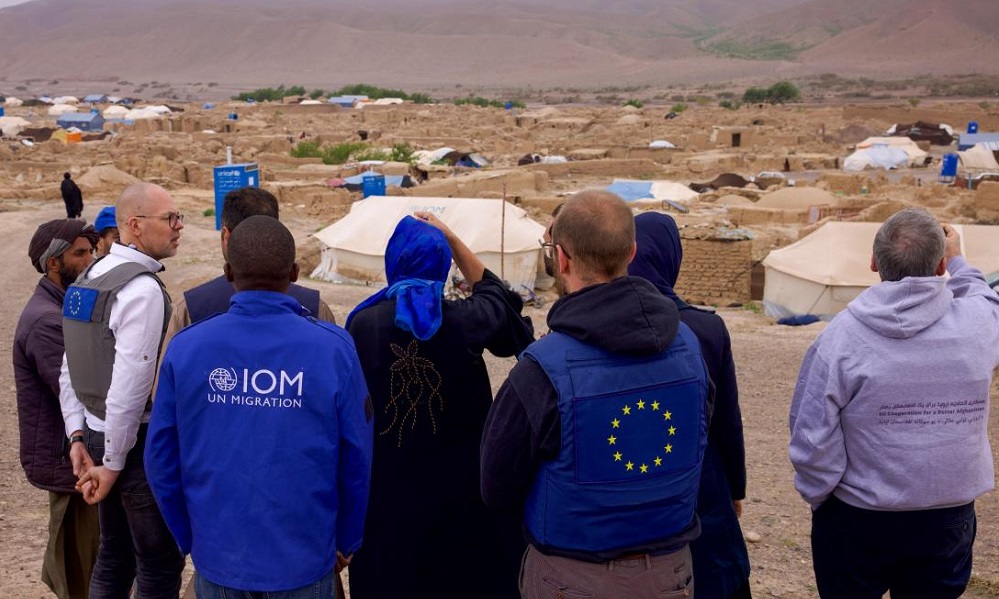
The European Union signed an agreement worth 17 million euros with the International Organization for Migration (IOM) to improve access to basic services, increased economic opportunities and protection for Afghans on the move and their host communities in Afghanistan.
The needs of women and girls are a particular focus of the programme, EU said in a statement released on Thursday.
The statement noted that from January 2023 until April 2024, over 1.5 million Afghans returned from Pakistan and Iran.
“I am deeply moved by the hardship returnees face when being deported to Afghanistan. In a country suffering from poverty and climate change, and in a city that just saw devastating earthquakes, this truly is a crisis within a crisis.”, said Peteris Ustubs, Director for the Middle East, Asia and Pacific of the European Commission’s Department for International Partnerships during the signing ceremony at the IOM transit centre in Herat.
Raffaella Iodice, EU Chargée d’Affaires a.i. to Afghanistan, added “The solidarity of the Afghan people towards their brothers and sisters is an inspiration. We must assure that communities hosting and helping new arrivals are supported. The partnership with IOM ensures access to essential services and provides protection for Afghan returnees and their host communities. As women and girls can be particularly affected, we make sure that all members of society can benefit”.
“IOM’s continued partnership with the EU has been critical in enabling our teams to reach hundreds of thousands of Afghan returnees and other vulnerable communities in the country”, said IOM Afghanistan Chief of Mission, Maria Moita. “Thanks to this renewed commitment, we will be able to focus on addressing the immense challenges in the areas of return and contribute to reintegration, social cohesion, and longer-term solutions for those communities.”
This additional contribution is part of a 5-year programme that is being implemented across Afghanistan and in four countries in the region. It builds on the EU’s previous support to IOM to improve the wellbeing of Afghans forced to return to the country, EU said.
Latest News
Malaysia vows to share its experiences on cyber security with IEA
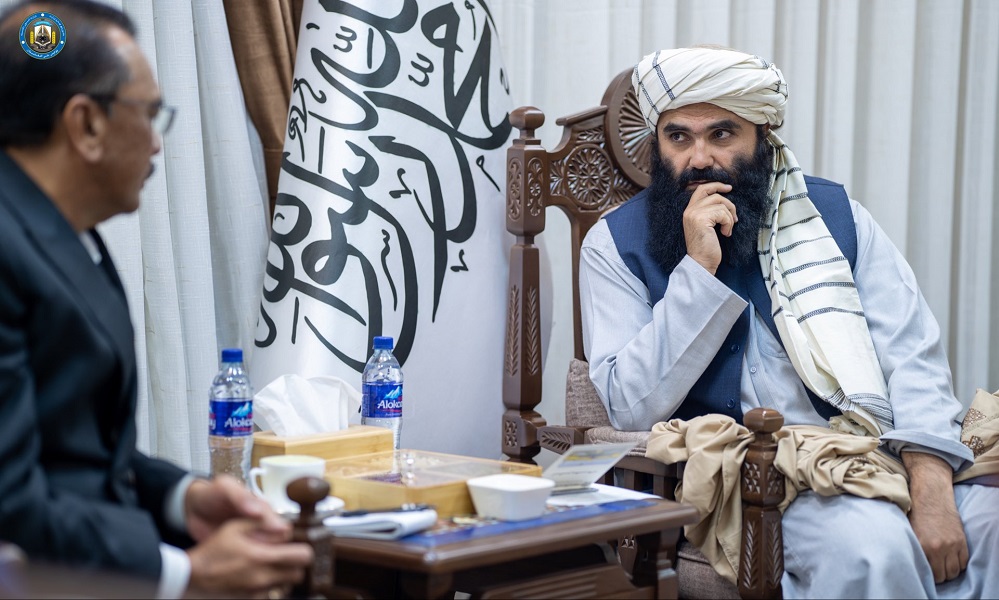
Acting Minister of Interior Affairs Sirajuddin Haqqani has said in a meeting with a delegation from Malaysia in Kabul that Malaysia is an advanced country and that Afghanistan should use is experiences.
According to a statement released by the Interior Ministry, Haqqani, in the meeting on Thursday, emphasized that security is ensured in Afghanistan and unity among Afghans has been restored.
He stated that the Islamic Emirate wants to have close relations and engagement with the world, especially Islamic countries.
The Malaysian delegation consists of representatives of the Ministries of Interior and Defense, and advisers of the Prime Minister’s Office.
According to the statement, a member of the delegation provided information about Malaysia’s capabilities in cyber security and tackling cyber crime, and said that Malaysia will share its experiences in this field with the Islamic Emirate.
In the meeting, the two sides also discussed the fight against drugs, police training, bilateral cooperation and exchange of experiences between Malaysia and Afghanistan.
-

 Latest News3 days ago
Latest News3 days agoRashid Khan named AWCC’s brand ambassador
-

 Regional4 days ago
Regional4 days agoIranian president lands in Pakistan for three-day visit to mend ties
-

 Climate Change5 days ago
Climate Change5 days agoMassive river flooding expected in China, threatening millions
-

 Sport4 days ago
Sport4 days agoKolkata beat Bengaluru by one run in IPL as Kohli fumes at dismissal
-

 Sport4 days ago
Sport4 days agoACL: Aino Mina 3-0 Istiqlal Kabul; Attack Energy 3-0 Khadim
-

 Climate Change4 days ago
Climate Change4 days agoRescuers race to reach those trapped by floods in China’s Guangdong
-

 Business5 days ago
Business5 days agoAfghanistan, Kazakhstan to hold joint expo in Kabul
-

 World3 days ago
World3 days agoMalaysian navy helicopters collide in mid-air, 10 killed








